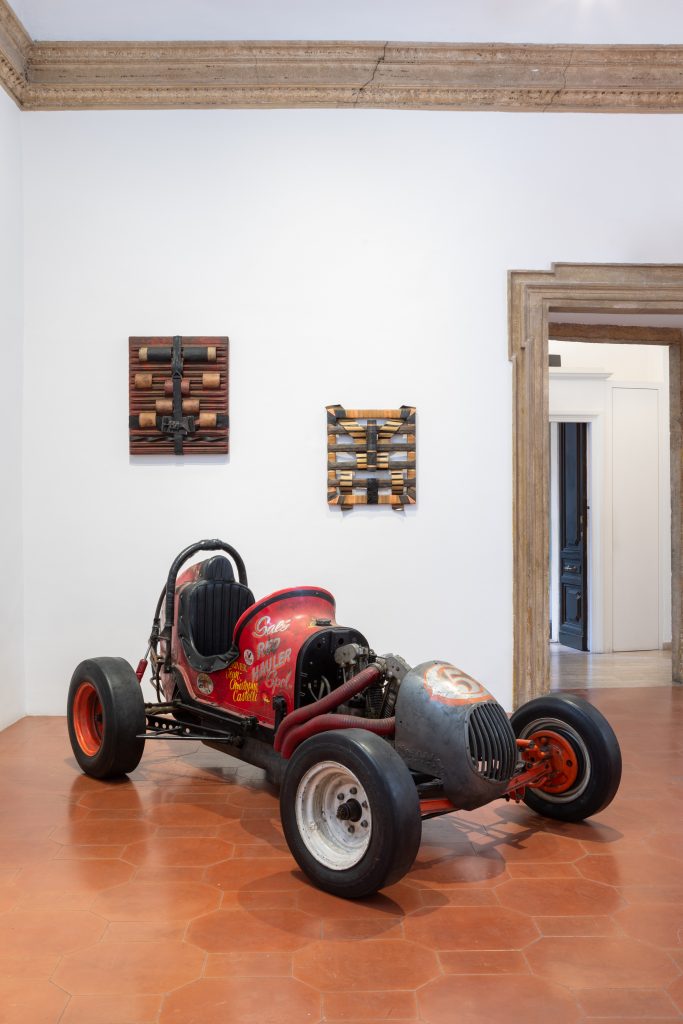Every month, hundreds of galleries add newly available works by thousands of artists to the Artnet Gallery Network—and every week, we shine a spotlight on one artist or exhibition you should know. Check out what we have in store, and inquire for more with one simple click.
What You Need to Know: On April 6, Galleria Mattia De Luca of Rome debuted the solo show “SAL,” featuring the work of Salvatore Scarpitta. On view through June 21 at Palazzo Albertoni Spinola, and curated by Luigi Sansone, it is the first time Scarpitta has been the subject of a retrospective in the Italian capital. Structured around two specific periods within Scarpitta’s oeuvre, his stretches in Italy and the United States, the show traces the evolution of his practice through some of the heights of his career. It is accompanied by a catalogue with an in-depth essay by the curator, information on the works in the show, and a section devoted to never-before-published documentary materials, including photographs, letters, and posters.
About the Artist: Italian American artist Salvatore Scarpitta (1919–2007) was born in New York City, grew up in Los Angeles, and attended the Academy of Fine Arts in Rome, where he graduated in 1940. With the outbreak of World War II, he worked within the Italian Resistance as a liaison with the U.S. Army, which led to him joining the U.S. Navy and becoming part of the Monuments Men, who worked to protect culturally significant materials such as artworks and archives as the Allied forces progressed across Europe. Once discharged, he relocated back to Rome, which is considered the start of his mature artistic journey. Materially experimental, Scarpitta’s work is often recognized for the ways it conveys motion, whether in sculpture, or painting, or frequently a combination of the two. This is particularly apparent in his work beginning in the 1960s, when he famously constructed his own automobile. He was given an entire room at the 1993 Venice Biennale, and a seminal retrospective was held after his death in 2012–13 in Turin, Italy, curated by Germano Celant and Danilo Eccher.
Why We Like It: Scarpitta’s life and work are in many ways emblematic of the profound changes that occurred within art over the course of the postwar period, moving from abstracted figuration work to the use of mixed media, as seen in the present exhibition. Pieces on view from the late 1950s, such as Dimensione and Toga (both 1958), convey a resistance to the traditional flatness of painting, with materials added atop or beneath the picture to warp its plane. Over the ensuing years, Scarpitta continued this project, making works with greater and greater intricacy and detail. Examples from the 1980s and 1990s illustrate the ultimate freedom of expression that he achieved, working outside the bounds of standard modes of art: found materials come together to create visceral compositions that defy easy categorization.
See inside the exhibition below.
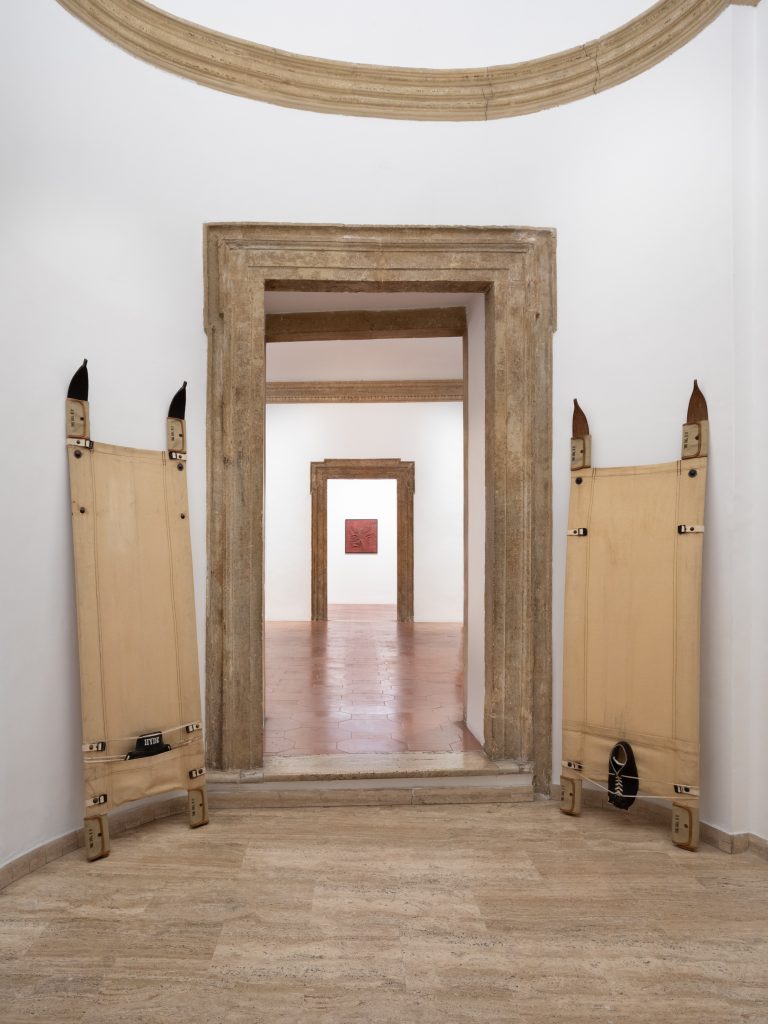
Installation view of “Salvatore Scarpitta: SAL” (2024). Courtesy of Galleria Mattia De Lucca, Rome.
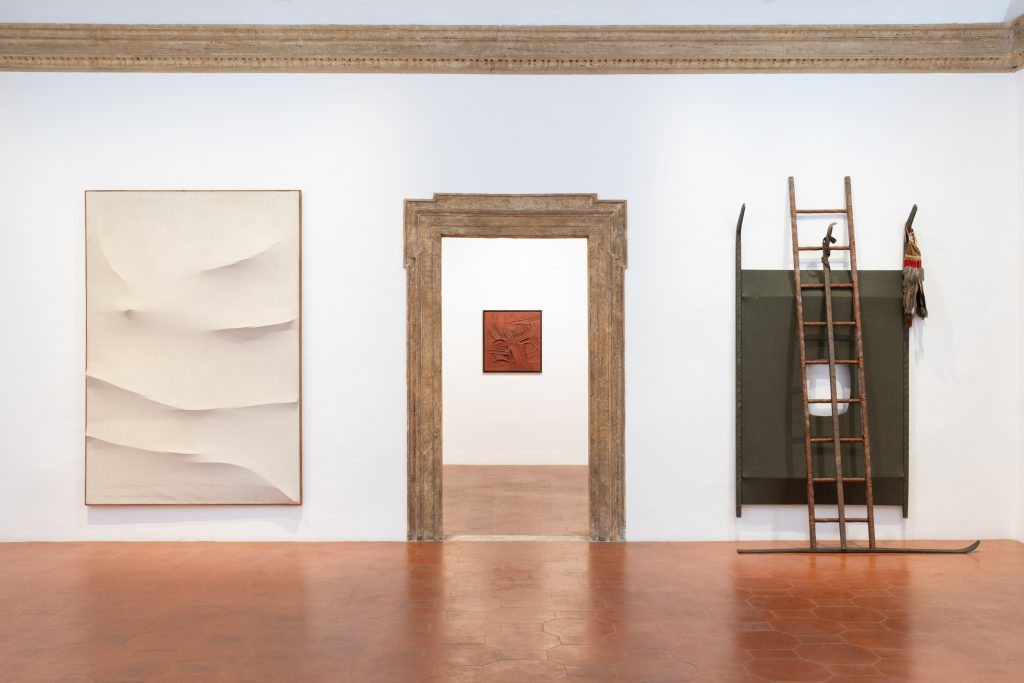
Installation view of “Salvatore Scarpitta: SAL” (2024). Courtesy of Galleria Mattia De Lucca, Rome.
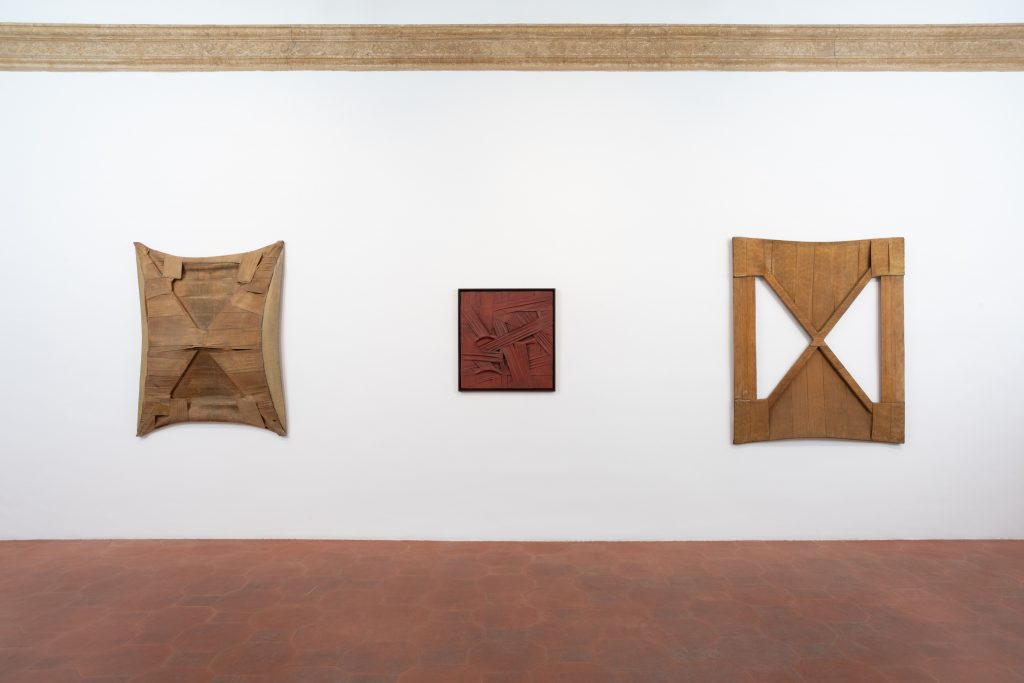
Installation view of “Salvatore Scarpitta: SAL” (2024). Courtesy of Galleria Mattia De Lucca, Rome.
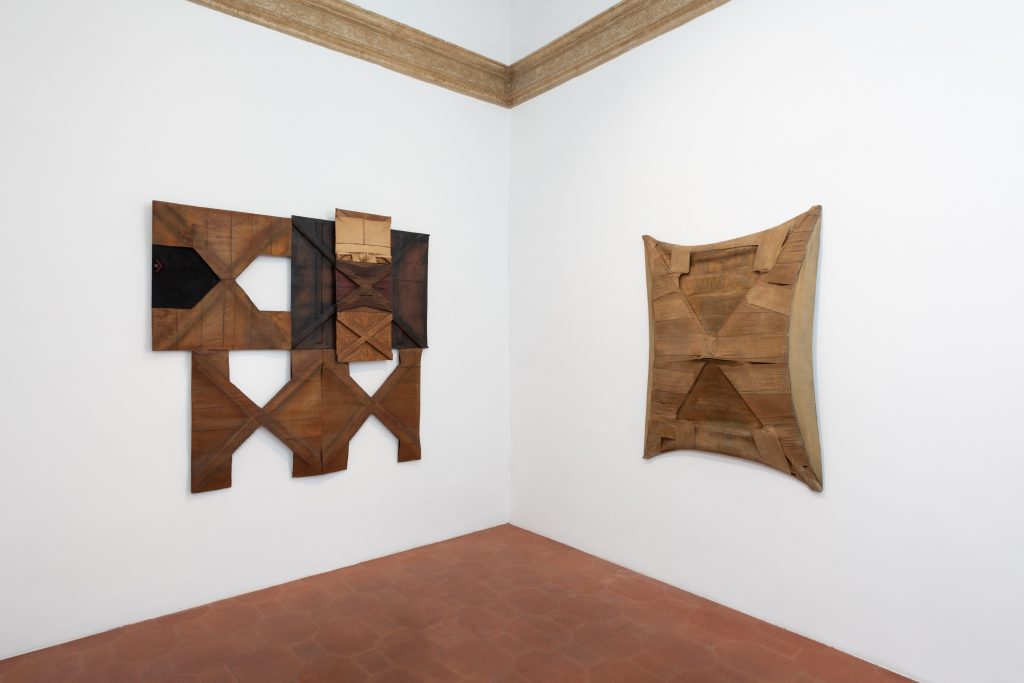
Installation view of “Salvatore Scarpitta: SAL” (2024). Courtesy of Galleria Mattia De Lucca, Rome.
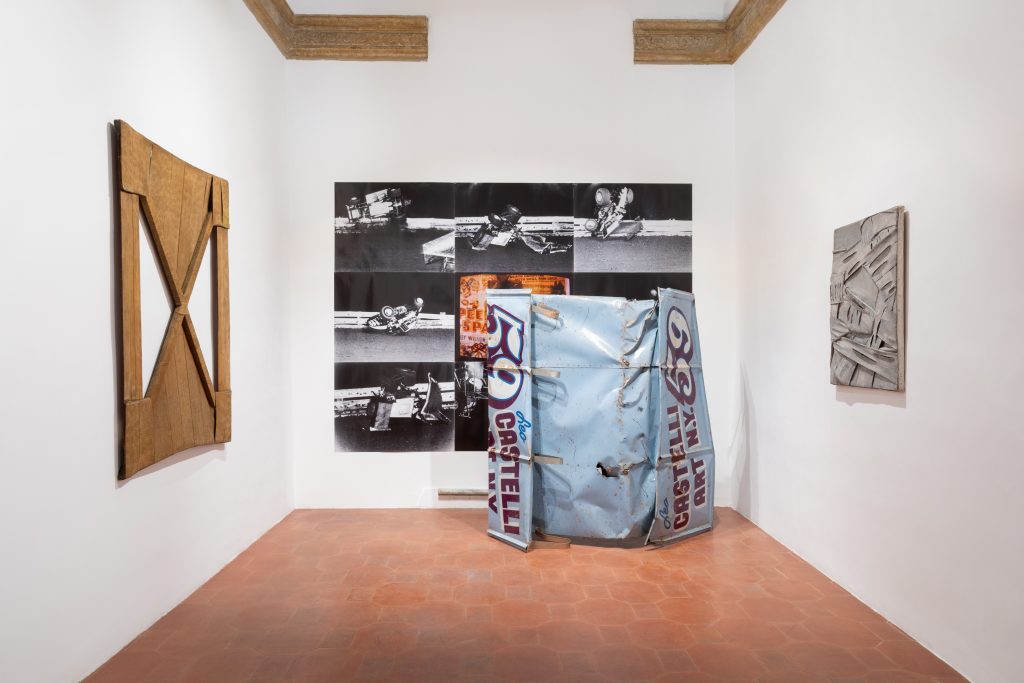
Installation view of “Salvatore Scarpitta: SAL” (2024). Courtesy of Galleria Mattia De Lucca, Rome.
“SAL” is on view at Galleria Mattia De Luca, Rome, through June 21.
